 W
WKarimeh Abbud, was a Palestinian professional photographer and artist who lived and worked in Palestine in the first half of the twentieth century. She was one of the first woman photographers in the Arab World.
 W
WRamzi Aburedwan is a Palestinian composer, arranger, educator; and viola and buzuq player. He is the bandleader of Ensemble Dal’Ouna and the Palestine National Ensemble of Arabic Music. He founded the al Kamandjâti music centre and has collaborated with several international and renowned musicians. He first studied at the Edward Said National Conservatory of Music and then in the Regional Conservatory of Angers (France). Several documentaries have been made of his life, including Its Not a Gun (2005) and Just Play (2012). He is the main subject of the book Children of the Stone: The Power of Music in a Hard Land by Sandy Tolan (2015).
 W
WAccording to apocryphal Christian and Islamic tradition, Saint Anne was the mother of Mary and the maternal grandmother of Jesus. Mary's mother is not named in the canonical gospels. In writing, Anne's name and that of her husband Joachim come only from New Testament apocrypha, of which the Gospel of James seems to be the earliest that mentions them. The mother of Mary is mentioned, but not named, in the Quran.
 W
WVera George Ghattas Baboun is a Palestinian politician and the first female mayor of Bethlehem. Baboun has a master's degree in African-American literature. Prior to her election, she became the principal of the Roman Catholic High School in Beit Sahour (2010-2012) and was an English literature lecturer at Bethlehem University, (1990-2010) where she was also the Assistant Dean of Students (2000-2006). Additionally, she is the chairperson of the Board of Directors for Guidance and Training Centre for Family and Children as well as a gender studies researcher in GRACE network looking at the role of information technology in empowering women in the Arab world. Baboun is the mother of five children. She is a Palestinian Christian.
 W
WJuan Jose Daboub, is the chairman and CEO of The Daboub Partnership, Founding Chief Executive Officer of the Global Adaptation Institute and former managing director of the World Bank (2006–2010). He has taught at Princeton University and is a member of several boards of directors.
 W
WDavid is described in the Hebrew Bible as the third king of the United Monarchy of Israel and Judah, becoming king after Ish-bosheth. In the Books of Samuel, David is a young shepherd who gains fame first as a musician and later by killing the enemy champion Goliath. He becomes a favorite of King Saul and a close friend of Saul's son Jonathan. Worried that David is trying to take his throne, Saul turns on David. After Saul and Jonathan are killed in battle, David is anointed as King. David conquers Jerusalem, taking the Ark of the Covenant into the city, and establishing the kingdom founded by Saul. As king, David commits adultery with Bathsheba, leading him to arrange the death of her husband Uriah the Hittite. David's son Absalom schemes to overthrow David. David flees Jerusalem during Absalom's rebellion, but after Absalom's death he returns to the city to rule Israel. Because David shed much blood, God denies David the opportunity to build the temple. Before his peaceful death, he chooses his son Solomon as successor. He is honored in the prophetic literature as an ideal king and the forefather of a future Messiah, and many psalms are ascribed to him.
 W
WThe Book of Ruth is included in the third division, or the Writings (Ketuvim), of the Hebrew Bible; in most Christian canons it is treated as a history book and placed between Judges and 1 Samuel.
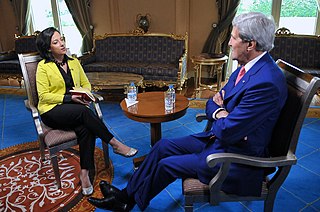 W
WKim Ghattas is a Dutch-Lebanese journalist for the BBC who has covered the US State Department. She is a scholar at the Carnegie Endowment for International Peace and the author of Black Wave: Saudi Arabia, Iran, and the Forty-Year Rivalry That Unraveled Culture, Religion, and Collective Memory in the Middle East, which The New York Times recognized as one of the "100 Notable Books of 2020."
 W
WMarie-Alphonsine Danil Ghattas was a Palestinian Christian nun who founded the Dominican Sisters of the Most Holy Rosary of Jerusalem, the first Palestinian congregation. She was beatified by Archbishop Angelo Amato on behalf of Pope Benedict XVI in 2009.
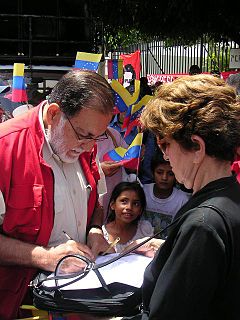 W
WSchafik Jorge Handal was a Salvadoran politician. Born in Usulután, he was the son of Palestinian immigrants from the town of Bethlehem.
 W
WFranzi Hato Hasbún Barake was a Salvadoran politician of Palestinian origin
 W
WHanan Al Hroub is a Palestinian teacher who in 2016 was the second winner of the Global Teacher Prize, which specialises in supporting children traumatised by violence.
 W
WAnnemarie Jacir is a Palestinian filmmaker and poet.
 W
WEmily Jacir is a Palestinian artist and filmmaker.
 W
WJesse, or Yishai is a figure described in the Bible as the father of David, who became the king of the Israelites. His son David is sometimes called simply "Son of Jesse". The role as both father of King David and tribal ancestor of Jesus has been used in various depictions in art, e.g. as the Tree of Jesse or in hymns like "Lo, how a rose e'er blooming."
 W
WJesus, also referred to as Jesus of Nazareth or Jesus Christ, was a first-century Jewish preacher and religious leader. He is the central figure of Christianity, the world's largest religion. Most Christians believe he is the incarnation of God the Son and the awaited Messiah prophesied in the Old Testament.
 W
WJoseph is a figure in the canonical gospels who was married to Mary, Jesus' mother, and was Jesus' legal father. The Gospels name brothers of Jesus; the Gospel of James, an apocryphal work of the late 2nd century, explained these as the sons of Joseph from an earlier marriage; this position is still held in the Orthodox churches, but in the Western church it was dropped in favour of Saint Jerome's argument that Joseph, like Mary, must have been a lifelong virgin, so that the "brothers" must have been his cousins. Perspectives on Joseph as a historical figure are distinguished from a theological reading of the Gospel texts.
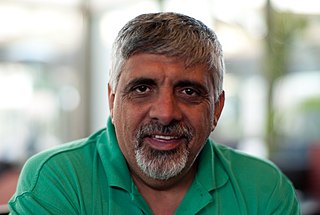 W
WDaoud Kuttab, is a Palestinian journalist with American citizenship.
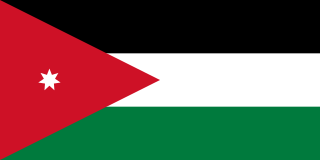 W
WAmin Mahmoud is a Jordanian politician, educator and author. He has served three times as a member of the cabinet of Ministers of Jordan, once as a member of the XXIV Senate of Jordan, and is currently serving as a member of the XXVI senate council. He has also held the position of president of four Jordanian universities. His written works include a wide range of books, research papers and published articles in the fields of history, education and other public issues.
 W
WNaomi is Ruth's mother-in-law in the Hebrew Bible in the Book of Ruth. The etymology of her name is not certain, but it is possible that it means "good, pleasant, lovely, winsome."
 W
WOrpah is a woman mentioned in the Book of Ruth in the Hebrew Bible. She was from Moab and was the daughter-in-law of Naomi and wife of Chilion. After the death of her husband, Orpah and her sister-in-law Ruth wished to go to Judea with Naomi. However, Naomi tried to persuade both Ruth and Orpah to return to their people and to their gods. Ruth chose to remain with Naomi, however, Orpah chose to return to her people and her gods..
 W
WAbu Qatada al-Filistini, born Omar Mahmoud Othman in 1959/1960, is a Salafi cleric and Jordanian national. Abu Qatada was accused of having links to terrorist organizations, and frequently imprisoned in the United Kingdom without formal charges or prosecution before being deported to Jordan, where courts found him innocent of multiple terrorism charges.
 W
WMitri Raheb is a Palestinian Christian, the pastor of the Evangelical Lutheran Christmas Church in Bethlehem, and the founder and president of the Diyar Consortium, a group of Lutheran-based, ecumenically-oriented institutions serving the Bethlehem area.
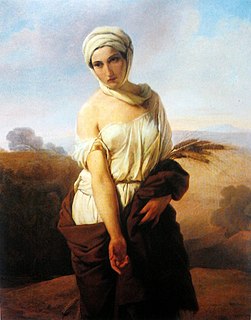 W
WRuth is the person after whom the Book of Ruth is named. In the narrative, she is not an Israelite but rather is from Moab; she marries an Israelite. Both her husband and her father-in-law die, and she helps her mother-in-law, Naomi, find protection. The two of them travel to Bethlehem together, where Ruth wins the love of Boaz through her kindness.
 W
WElías Antonio "Tony" Saca González is a Salvadoran politician who was President of El Salvador from June 1, 2004 to June 1, 2009. He is currently serving a minimum 10 year prison sentence on corruption charges.
 W
WSerafim Saca is a writer from Moldova. He is credited with being the author and director of several documentaries including House with Flowers (1965), Chiinau – 67 (1967), and Cross-Roads (1967). He became a member of the Moldovan Writers' Union in 1966. He was forbidden to publish between 1976 and 1987.
 W
WJuan Yarur Lolas was a Chilean banker. He was the co-founder of Banco de Crédito e Inversiones in 1937, and he served as its president from 1946 to 1954. The bank is still owned by his descendants.